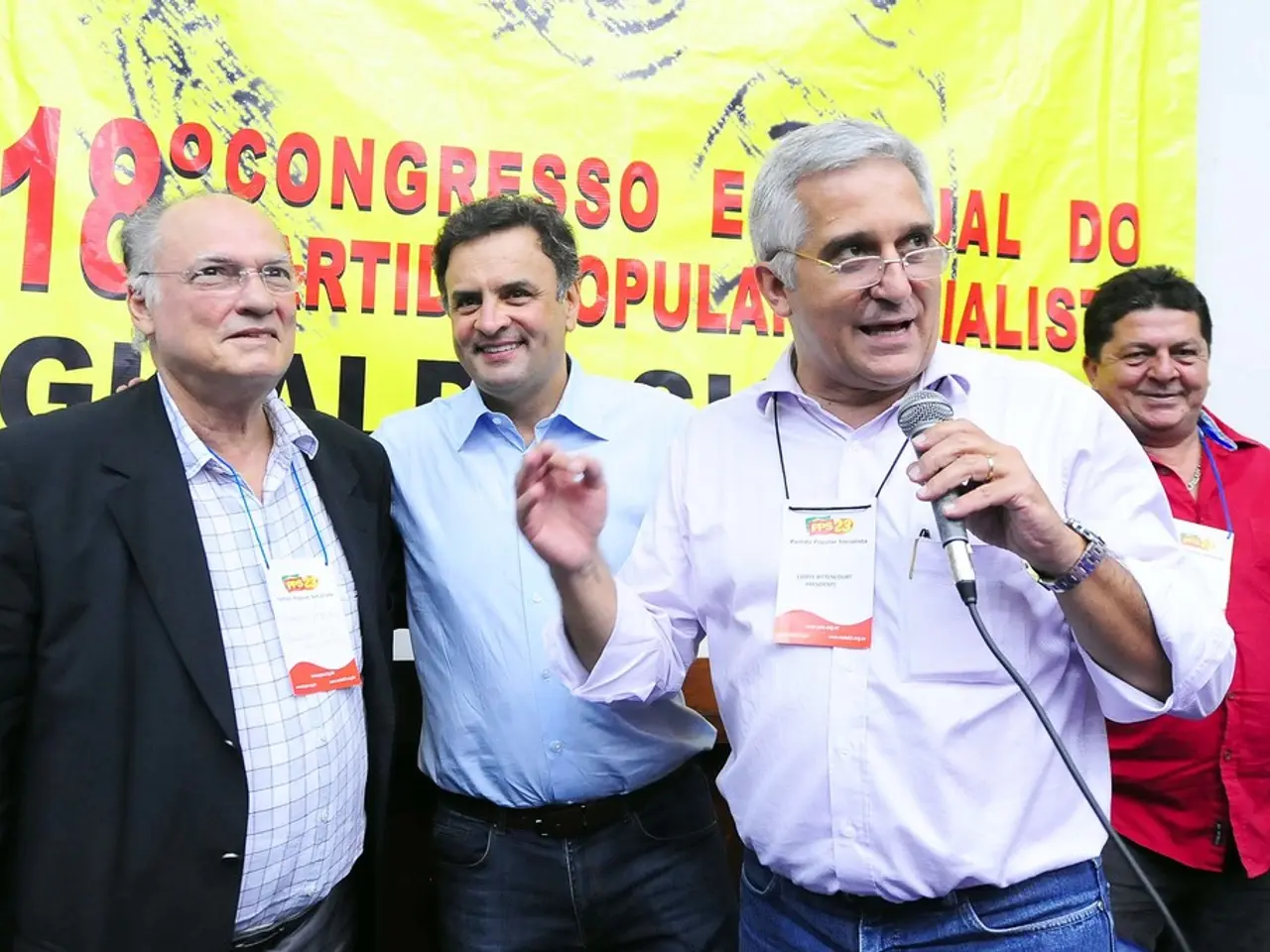Texas Governor Allegedly Issues Threat of Legal Sanctions Towards Democratic Lawmakers Due to Prolonged Legislative Voting
In the heart of Texas politics, a contentious redistricting process has taken a dramatic turn, with Democratic lawmakers leaving the state to prevent a Republican-proposed plan that could add up to five GOP seats in Congress. This departure has halted the Texas House from conducting business, as it requires at least 100 members present, and serves as a major protest against what Democrats describe as a racially discriminatory and rigged redistricting process.
Governor Greg Abbott has sent a letter to the Democrats, requesting their return by a Monday afternoon deadline. However, Texas Attorney General Ken Paxton has called for the Democrats who fled to be arrested and brought back to the Capitol, invoking state law that mandates attendance and allows penalties for quorum-breaking absences. This puts the lawmakers at risk of legal consequences, including potential arrest orders issued by the state, escalating tensions between the parties.
The walkout has drawn national attention, framing it as a moral stand against what Democrats call an effort to suppress minority voting strength in favour of a GOP advantage. Domestically within Texas, Republicans have used the walkout as leverage to push forward other legislative priorities and have expressed determination to "hunt down" Democratic dissenters, further polarizing the Texas political environment.
The redistricting plan itself is the subject of ongoing legal challenges, reflecting broader contentious battles over voting maps ahead of upcoming elections. The new congressional maps aim to increase Republican representation from 25 to 30 seats, particularly in areas where former President Trump won by significant margins.
Gene Wu, the leader of the Texas House Democratic Caucus, stated that they will do whatever it takes to maintain their absence from Texas. The Democratic faction intends to remain outside Texas for two weeks, coinciding with the conclusion of the special legislative session. Texas Democratic legislators have taken refuge in Illinois, where Governor JB Pritzker has vowed to protect them amid the threats of legal action.
Altering redistricting maps mid-cycle is not common practice, as demonstrated by the current situation in Texas. Allegations of gerrymandering often accompany redistricting efforts by both parties. Governor Abbott has threatened that lawmakers who do not return may face allegations of second-degree felony bribery. Abbott stated that bribery would occur if lawmakers took money to perform or refuse to perform an act in the legislature.
The political stakes of the Democrats' walkout are high, positioning it as both a legal and political flashpoint in Texas's governance and electoral landscape. Other Democratic leaders across the country are considering revising their own maps in anticipation of potential seat losses stemming from Texas's new redistricting.
In New York, Governor Kathy Hochul has suggested looking into a constitutional amendment to expedite legislative map redrawing processes in her state. The Texas Republicans have revealed a new congressional map designed to enhance their representation in the U.S. House of Representatives. Governor Abbott has issued a warning to Democratic lawmakers who have left the state, stating that their truancy ends now and they must return to Texas when the House reconvenes at 15:00 local time.
This situation underscores the complex and contentious nature of redistricting, a process all states undergo every ten years in response to population shifts. The legal and political implications are significant, with threats of arrest, ongoing lawsuits, and heightened partisan conflict. The future of Texas's political landscape hangs in the balance as this dispute unfolds.
- In response to the Texas Democrats' absence, Governor Abbott has invoked policy-and-legislation, threatening alleged bribery charges for any lawmaker who does not return, adding to the escalating tensions in the realm of politics.
- Meanwhile, the policy-and-legislation standoff in Texas has drawn national attention, with other states, such as New York, considering changes to speed up legislative map redrawing processes, reflecting the broader implications of war-and-conflicts related to redistricting on the general-news landscape.






